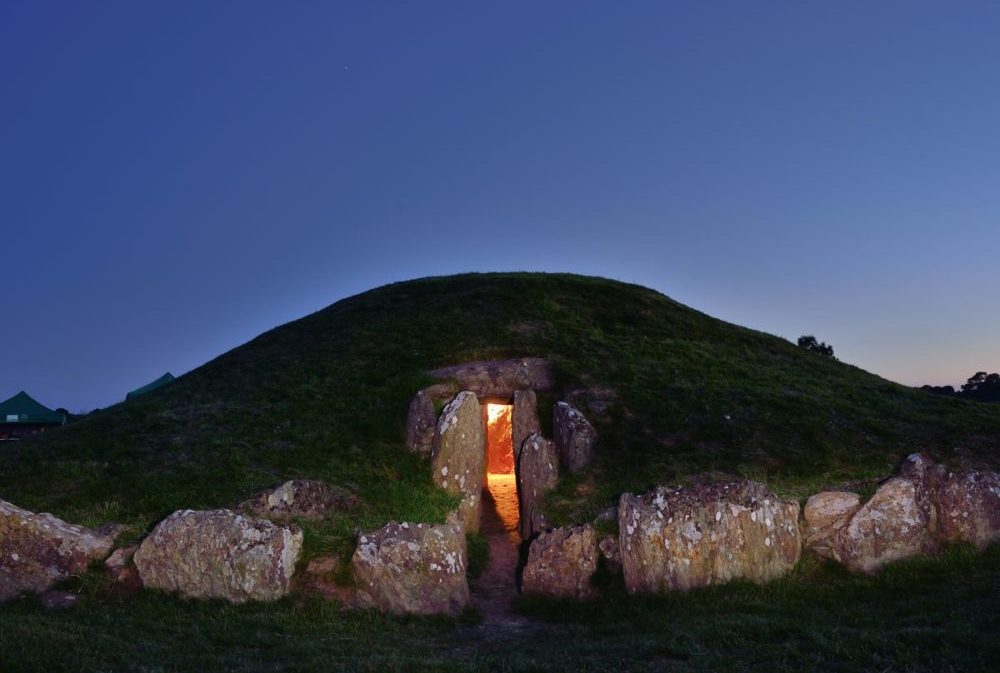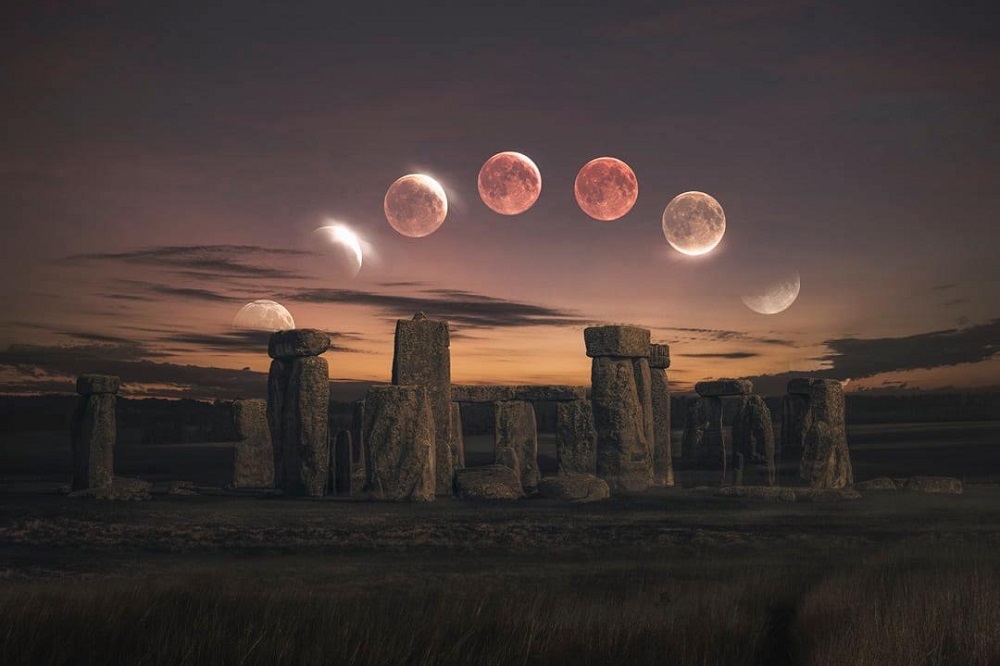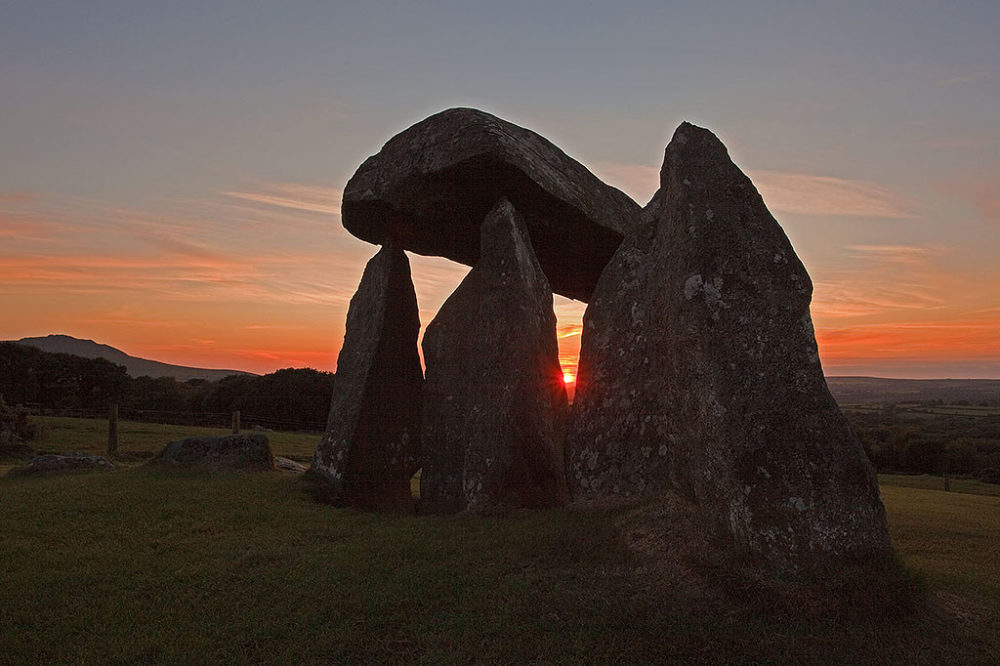Heuldro’r haf: Summer solstice takes place today

Stephen Price
Get ready for the inevitable ’days will start getting shorter soon’ comments as we celebrate the longest day and summer solstice, or heuldro’r haf in Welsh, today.
The summer solstice marks the period in which we will see the longest number of daylight hours of the year, which takes place this year on Thursday 20 June at 21.51pm.
In the Northern Hemisphere, the solstice marks the 24-hour period with the longest duration of daylight hours of the year, with some referring to it as ‘midsummer’, the longest day of the year, or the shortest night of the year.
However, while most people consider the summer solstice to be a day, it is actually an exact moment in time that falls upon that day.
This moment comes when whichever hemisphere you’re in is most tilted towards the Sun.
Sun at highest point
The word solstice stems from the the Latin words ‘sol’ (sun) and ‘sistere’ (to stand still), which makes sense as the sun seems to “stand still” on the horizon’s rising and setting point.
The summer solstice occurs when the Sun is highest in the sky – the actual moment in 2024 being at 21.51pm GMT for us in Wales, but most people concentrate on the whole solstice day (either 20 or 21 June).
The earth rotates on a tilted axis. When this axis leans towards the sun, it’s summer in the Northern Hemisphere and winter in the south. This is reversed as the earth continues on its orbit until the axis becomes tilted away from the sun.
During the solstice, the earth’s axis is tilted at its closest point from the sun. This means that, for us, the sun is at its highest point in the sky.
People across the world celebrate the summer solstice as the beginning of summer, with a popular gathering set to take place at Stonehenge in Wiltshire, England – with many meeting this evening at 7pm when glimpses of the sun will illuminate the ancient stones through pin-point-accurate frames left by our ancestors.

According to the British Museum, the famous stone circle was built to carefully align with the sun’s movements.
Standing in the centre of the monument on midsummer’s day, the sun rises just to the left of the outlying Heel Stone to the north-east and the first rays of the day shine into the heart of Stonehenge.
Here in Wales, many prefer a visit to their own favourite haunts, often standing stones, such as Pentre Ifan or Bryn Celli Ddu.
A Celtic Revival
Long before the Romans, and indeed the Angles, Saxons and others came to Britain, our Celtic ancestors celebrated the summer solstice.
They saw it as a time of abundance, fertility, and the victory of light over darkness. They believed that during this time, the barrier between worlds was at its thinnest, allowing for a stronger spiritual connection.

The Druids, the spiritual leaders of the Celts, played a big part in these celebrations. They gathered at sacred sites such as standing stones to perform rituals, light bonfires, and make offerings to the gods.
The Neolithic tomb Bryn Celli Ddu on Ynys Môn is considered one of the most important places in Wales to watch the sunrise on the solstice.
For just 20 minutes each year, a beam of sunlight shines directly into the inner chamber that attracts many visitors.
The circle game
Another traditional way to celebrate the summer solstice in Wales is on Gathering Day, which is celebrated on the first Monday after the summer solstice.
On Gathering Day, people would gather to collect herbs and other plants that were believed to have special powers.
According to Welsh traditions, placing a sprig of mistletoe under your pillow on the summer solstice will bring you prophetic dreams.
They would also feast on fresh fruits and vegetables, and dance around bonfires to celebrate the longest day of the year.
And while summer has only just begun according to the astronomical calendar, there will still be many people taking pleasure from reminding us that days will begin to shorten from here-on-in in an endless cycle of light and dark in triumph
And the seasons they go round and round
And the painted ponies go up and down
We’re captive on the carousel of time
We can’t return we can only look
Behind from where we came
And go round and round and round
In the circle game
(Joni Mitchell)
Support our Nation today
For the price of a cup of coffee a month you can help us create an independent, not-for-profit, national news service for the people of Wales, by the people of Wales.





